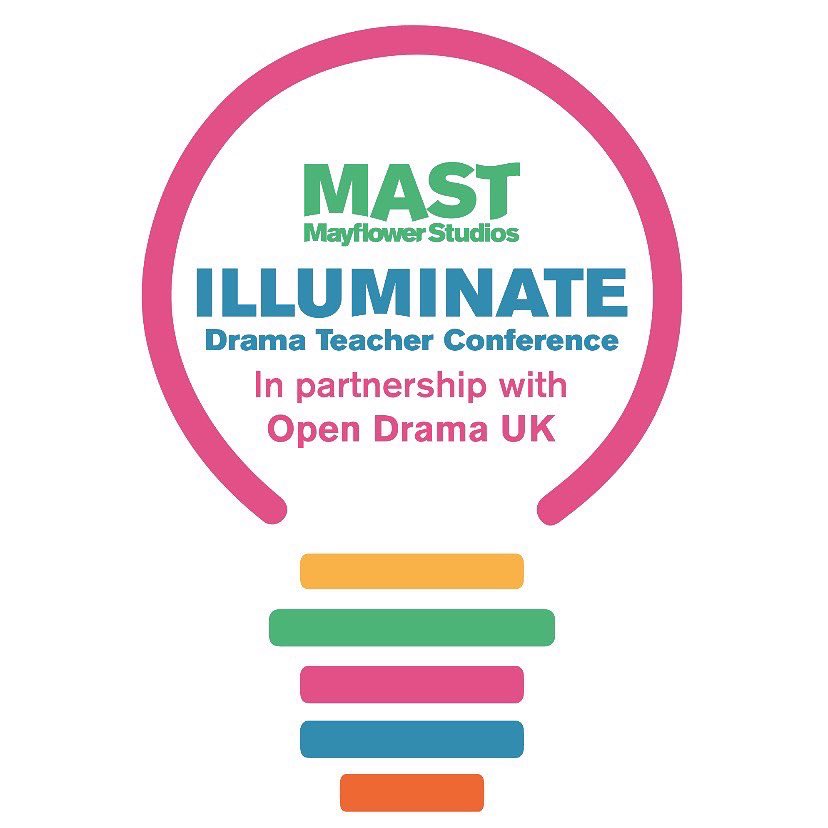November 2022 Drama update
Dear colleagues,
I hope that the second half of autumn term is going well so far.
Here is your mid November 2022 update with all the latest news for GCSE and A level Drama teachers.
In this update you will find:
Component 2 survey
We would like to hear your plans for the assessment of Component 2 this year; please complete the form below with as much detail as you can at this stage.
The examination window for Component 2 will be 30 January to 31st March 2023 in this academic year.
We plan to allow* all centres (including international centres) to be able to either request a visiting examiner or to record the work within the centre and submit it to your allocated examiner for assessment via Learner Work Transfer (LWT).
Please note - we are unable to allocate an examiner to your centre until you have made exam entries.
Exam entries for Component 2 can be made from 14th November 2022.
The closing date for exam entries for UK centres is 21st February 2023.
The closing date for exam entries for international centres is 21st March 2023.
For further information on Component 2 and the administration of the qualification, please refer to the Administrative Support Guide.
Please submit your responses to this survey by Friday 9th December 2022
*subject to Ofqual approval

Admin Support Guides and forms
The Administrative Support Guides for GCSE Drama and A level Drama and Theatre are now available for this academic year, including information on:
- key dates
- administrative guidance for all three Components
- guidance on using Learner Work Transfer (LWT) platform for Components 1 and 2
- support on how to contact us
We have also provided new, clearer (and fewer) forms for Components 1 and 2 for this year to cut back on admin burden.

A Level Drama and Theatre guidance
As you prepare for A Level Drama and Theatre in the 2023 series, we offer you some bullet point reminders to help to guide you.
The following information from the Senior team should be read in conjunction with the specification, the 2023 ASG (Administrative Support Guide) and material on the website, including the Principal Moderator and Examiner reports from 2022.
As centres return to a normal year, Component 1 provides an exciting opportunity for performers and designers to create original theatre.
Centres are reminded of some of the top tips from this year's Principal Moderator's report.
· Ensure the influence of the chosen practitioner is evident throughout the final performance/design realisation and portfolio. A range of theatre makers may contribute to the influence, but the chosen practitioner should dominate
· Find ways for your students to refer to the chosen extract, where appropriate. Sophisticated responses do this, throughout. Not just in statement 1
· Ensure audience impact is paramount in student evaluation of process and performance. Sophisticated responses do this, throughout. Not just in statement 6
· Connect theory and practice, throughout.
Finally, teachers are reminded that evidence for AO2 is solely reliant on the quality of the final recording. Please ensure candidates are clearly identified and well lit!
Early visits:
the LWT will not open for your centre to upload the Pre-Visit documentation for Drama and Theatre until your entries have been made. This usually occurs in mid to late February at most centres, but if you are looking for an early February visit you will need to speak to your Exams Officer prior to starting to upload.
Key extracts:
for copies of the key extract for the Monologue/Duologue to be uploaded onto the LWT both prior to a live visit and for a Digital Submission, it is important that the extract is a photocopy from the script, not a typed-up version. If you are having a live visit, the full scripts for both performances should also be available to the Visiting Examiner.
'Direct address' during a monologue:
following several queries on Ask the Expert, it is important to note that of the 5 criteria for a Monologue/Duologue, 2 relate to communicating the role in context and interpreting the playwright's intentions. Direct address is rarely found in a scene when there is another character on stage, the obvious exception being a Shakespearean aside, which is not direct address. Where students reimagine a scene out to the audience or place another character in the audience, when in the context of the performance text the fourth wall should not be broken, this will impact on their potential level. Clearly, no one wants to see a candidate get 0 marks and within the level descriptors there are 3 other bullet points, and it is in these areas that examiners can award marks. When 2 out of 5 indicators are not met, however, it would be very hard to justify a candidate being marked as Assured or Sophisticated.
Section A Live Theatre Evaluation:
Do make sure that your students don’t write about ANY of the set texts from the specification. Even if you’re not studying a text, it is still forbidden and will get zero marks.
Do think carefully about what they see, the sky’s the limit with online performances now available. Musicals work the least well and are best avoided altogether. A sung-though musical e.g., Les Miserables would get zero marks.
Section C Interpreting a Performance text:
Choose a logical combination of text and practitioner, there is so much to do in Section C, keep things as straightforward as possible.
The concept is the most important thing to get right. Don’t let your students choose ridiculous concepts that then get in the way of their response. It needs to reflect and respect the themes and issues of the play. Too many concepts seem to be trying too hard to be original, witty or zany and they rarely work. A concept that is broad based rather than specific tends to be much more successful. E.g. For Hedda Gabler, a concept looking at male/female relationships would work much better than one trying to look at something very specific such as The Suffragettes.


There is a Drama Teacher Conference happening on Friday 13 January 2023, 10am – 6pm at the Mast Mayflower Studios in Southampton.
It's an actual face to face event! A full day of inspiring workshops, featuring exciting opportunities to meet and talk with theatre education specialists, industry professionals and curriculum experts.
Including renowned physical theatre company Frantic Assembly, top devising specialist Kerry Frampton from Splendid Productions and covering topics such as practical approaches to set design with professional theatre designer and We Teach Drama, Verbatim Theatre with Mark Wheeller, demystifying audition technique with the Federation of Drama Schools, and I will be there too, alongside other exam board advisors.

Gone Too Far! at Theatre Royal Stratford East
National Youth Theatre are staging our GCSE Drama set text 'Gone Too Far!' by Bola Agbaje in 2023 at Theatre Royal Stratford East and are planning a series of activities for school teachers and pupils around the production.
Tell them what would best suit your school by filling in the short survey below

Human Nurture by Ryan Calais Cameron: National Drama event
17 November 2022, 530 - 7pm
online
Spend time with playwright Ryan Calais Cameron and director Rob Watt as they discuss this “poignant and explosive” new story to help you unpack the play with your drama class. This funny, exhilarating and emotional piece is sure to provide the engaging, topical and challenging content your classes will love.
Human Nurture was commissioned specifically to speak to our times and was developed with young people through Theatre Centreʼs acclaimed Future Makers programme. Ryan, the playwright, worked in schools and colleges around the country to root the world and language of HUMAN NURTURE.
The show has been created to enhance the GCSE Drama curriculum and includes resources on Practical, Design and Written Evaluation. Tackling themes of race and identity, Human Nurture can be used to inspire and entertain KS4 and KS5 drama and theatre students.
Find out more

Subject advisor
Paul Webster
Drama, Theatre and Performing Arts
